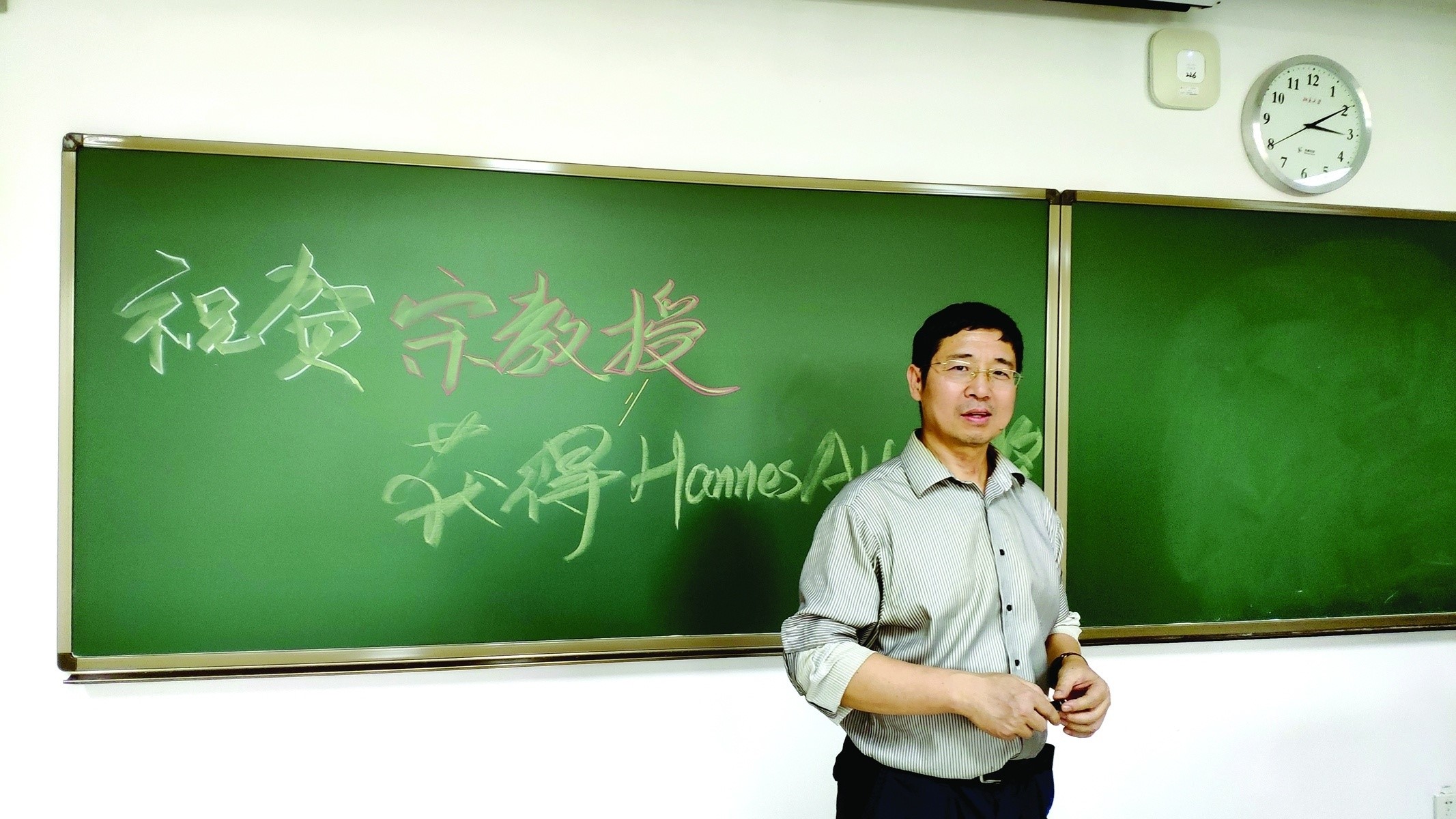Professor Zong Qiugang receives the highest award in space physics
Nov 04, 2020
Peking University, November 4, 2020: Professor Zong Qiugang from the School of Earth and Space Sciences at Peking University was recently awarded the SCOSTEP (Scientific Committee on Solar-Terrestrial Physics) 2020 Distinguished Science Award. The award is given to Zong in recognition of his contribution to the major breakthrough in space physics. SCOSTEP Distinguished Science Award is the highest award of SCOSTEP. It is given to one scientist every two years. Zong is the first Chinese to receive the award.
Professor Zong Qiugang
In October 2019, Professor Zong became the first Chinese recipient of Hannes Alfvén Medal. This medal is named after the famous physicist and winner of Nobel Prize in Physics, Hannes Alfvén. It is awarded for outstanding scientific contributions towards the understanding of plasma processes in the solar system and other cosmical plasma environments.
In the 1970s-80s, studying physics was very popular among youngsters considering the demand of China’s modernization. Zong, inspired by the Chinese physicists Tsung-dao Lee and Chen-ning Yang who have won Nobel Prize in Physics, chose nuclear physics as his major in Sichuan University. In 1989, the 24-year-old Zong got the opportunity of going to the Antarctic for expedition. The two years he spent there allowed him to focus on the study of physics, which laid a solid foundation for his later achievements in plasma physics. In 1994, Professor Zong went to study in Germany. In 1999, Zong received his Ph.D. degree from Max Planck Institute and Brunswick Technical University. Later he worked for Waseda University, Japan and Boston University, USA. In 2007, Zong returned to China and began working at Peking University.
Zong is one of the trailblazers in space physics in China. In the last decade, he and his team have dedicated to the research of ultra-low frequency waves and its interplay with the particles in the Earth’s magnetosphere. In 2007, he identified the acceleration process of energetic electrons in the Earth’s radiation belts, also known as “killer” electrons. This has been one of the most challenging and long-lasting unsolved problems. The discovery has been highlighted as a “top story” in the ESA Science News and in Discover Magazine. He has also been the PI of the Imaging Electron Spectrometer (IES), which was launched in 2015 onboard the Chinese FY3 and FY4 satellites and is supplying key data for magnetospheric substorm injections.
Moreover, Professor Zong is an excellent faculty member at Peking University. He works diligently, setting an example for the students. He said that his one and only requirement for students is that they must work hard.
Written by: Yang Hongyun
Edited by: Ma Yaoli
Source: Peking University Media Center
